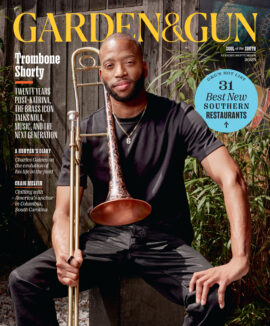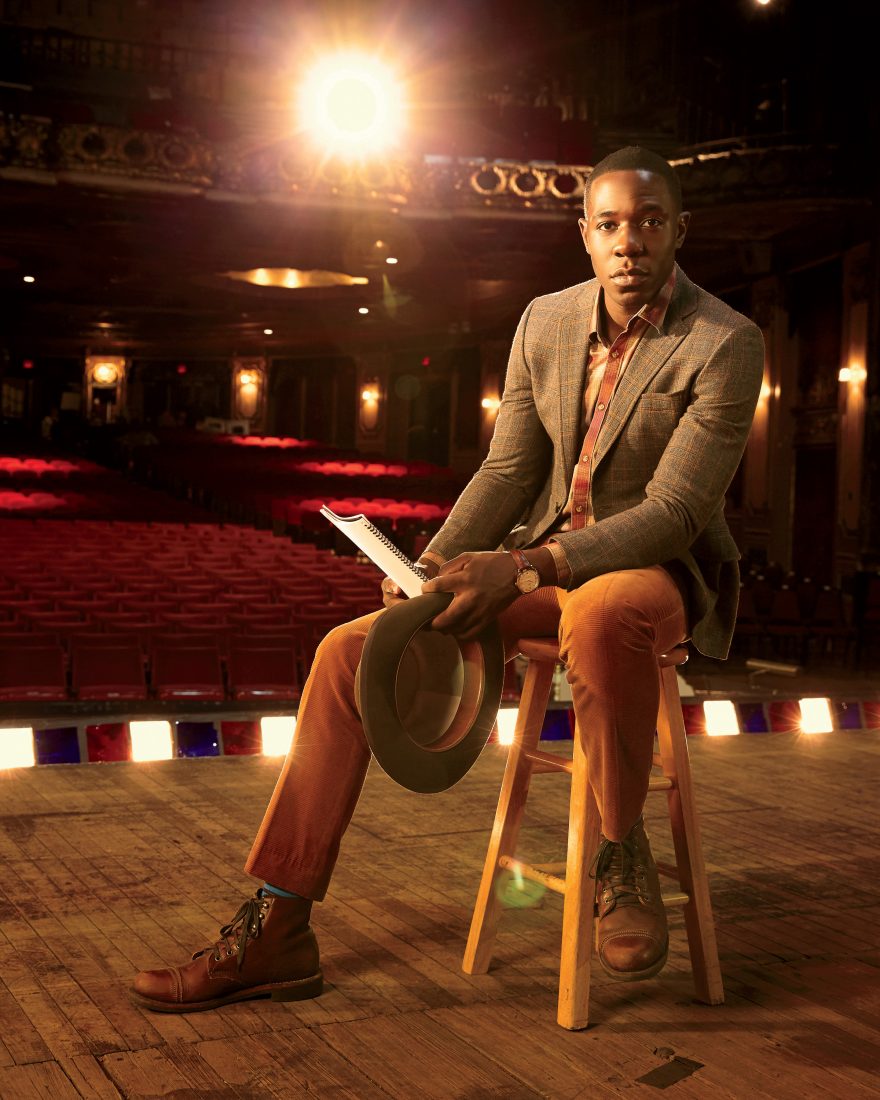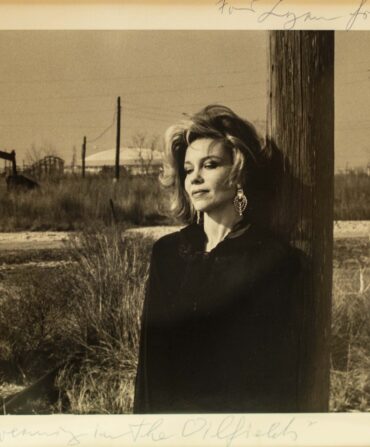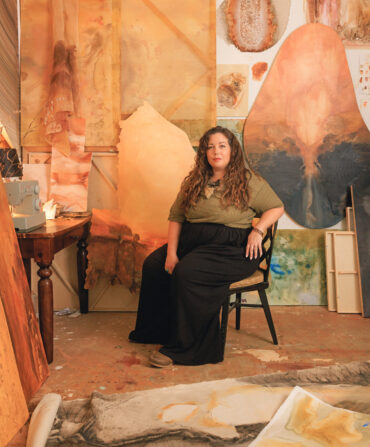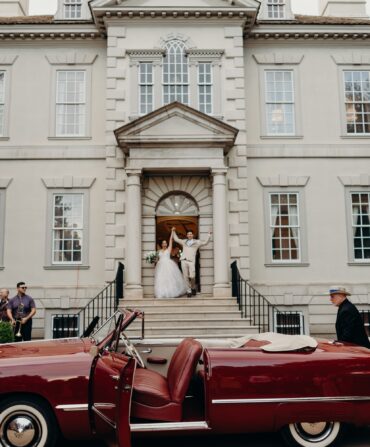It’s an age-old tale: A southern childhood begets a love of storytelling. “My dad constantly reminded us, ‘Listen whenever you get a chance to be around your grandfather, or your grandmother, or people who are older than you and care about you,’” the actor McKinley Belcher III recalls. “‘Soak in that wisdom while you have them around.’” Those years immersed in stories helped catapult the up-and-coming Atlanta native from treading the boards in a Shakespearean tragedy off-Broadway to starring opposite Kevin Bacon in a theater adaptation of Rear Window to winning a high-profile role on Mercy Street, PBS’s first original drama in more than a decade. The Civil War series, which debuts its second season on January 22, centers on the true story of Mansion House Hospital, a luxury hotel turned medical outpost in Union-occupied Alexandria, Virginia. Amid boiling tensions between Yankees and Confederates, blacks and whites, Belcher plays Samuel Diggs, a free man and laborer harboring secret healing skills—African Americans weren’t yet allowed to practice in Union hospitals. Belcher, though, is no stranger to risk in service of ambition: He forwent a law career in his hometown to seek his MFA in acting. Now he’s shooting Ozark, an upcoming Netflix series that’s set in the mountainous region but being filmed near where he grew up—a perfect excuse for the thirty-two-year-old to get back to the family who encouraged his calling.
Your degree from Nashville’s Belmont University was in communication studies and political science. How did acting come into the picture?
I did A Raisin in the Sun, on a whim, because a friend invited me to audition for it. I didn’t do any more plays while I was there, but I did speech and debate, and that sort of nurtured that creative acting side.
How so?
Depending on what the event is, you pick an issue, and then you have to take a stance. On an ongoing basis, you’re thinking about the world that you’re in. So I thought about what I wanted to see changed, and what the intersection of art and change could be. That continues to be something really important to me.
Mercy Street is about change, too.
The Civil War was a pivotal point for our country, and it in many ways defines who we are. It’s one of those moments in our history where we made a concerted effort to discuss who are we? And who do we want to be? Playing Samuel Diggs, I feel like he’s constantly in flux, up against how people perceive him. And as a black man in America, I think in 2016 that is something incredibly relevant—a lot of the conversations people are having around Black Lives Matter are about preconceived notions, and about how, particularly, young black men are perceived.
Samuel, who grew up in a Philadelphia doctor’s home, also has to adjust to the complicated lives of the “contraband”—slaves closer to freedom once over Union lines.
Anytime someone comes to me about a Civil War–set drama, my initial instinct is that I’m going to be asked to play a slave. So I was really excited that, in 1862, he manages to have agency in a world in which it’s very difficult for a black man to have agency. But his being there, in some ways, is a rude awakening. To intellectually understand something and to experience it on a day-to-day level are two very different things.

Photo: Ben Hoffmann
Hot Ticket
Belcher in vest, tie, and pants by Polo Ralph Lauren. Shirt by Billy Reid. Watch by Patek Phillippe.
Did growing up in the South influence this role?
I ran cross-country in high school, and we’d run around Kennesaw Mountain National Battlefield Park. There are [Civil War] statues and monuments all over. I remember running past them, and haphazardly reading the history there. It’s fun to me, to recall little facts we encountered during that time, and to be doing a project now, years later, where those monuments and statues become a living reality.
Filming in Richmond and Petersburg, Virginia, adds to the authenticity. You tweeted a photo saying, “VA summer heat + 1860s costume layers = actors rockin’ mini fans.”
When we’re shooting in the Old Towne district of Petersburg, the cameras can turn 360 degrees, and all of that footage is usable because that area’s so preserved. I think that’s an incredible blessing. I’m also grateful for heat. I’ll take it all. It makes the leap we have to make with our imaginations that much shorter.
You also offered up some of your new-found medical training over Twitter: “Need stitches? I’m your man!” Has anyone taken you up on it?
[Laughs.] No stitches as of yet, but I’m still open to that! I’d also never ridden a horse before working on Mercy Street. This season, I have to drive a horse-drawn carriage, and that’s a whole other kind of skill. There’s an on-set guy who’s a horseman here, and he had a place out in Petersburg—basically a ranch with a bunch of horses—and we went out there for a day and he gave me a little tutorial. I love being around the horses.
What about when the cameras are off?
The hotel we’ve stayed at the last couple of times is close to Belle Isle, and I like to run along the water. That helps me decompress. And we have our favorite restaurants—this Italian restaurant called Mamma Zu that we go to a lot. And there’s this random Chinese restaurant in Richmond: Peter Chang—it’s amazing. Not to be confused with P.F. Chang’s. It’s literally the best Chinese food I’ve ever had.
Recently you’ve returned to the Atlanta area, to shoot Ozark with Jason Bateman.
It’s been nice to slip in for a couple of days here and there. My favorite breakfast spot is in Decatur: Sweet Melissa’s. And I run along those same cross-country routes that we used in high school. The only other thing I do is spend time with my family, because I get to do that so rarely.
And you’re just getting busier. You costarred as a boxer in the well-reviewed play The Royale earlier this year. Will you continue to pursue theater?
That’s my first love—that sort of instant gratification and energy you get when you’re on stage compares to nothing else. I’m going to do a workshop off-Broadway in a couple weeks, but in terms of a full production, I’m really hoping to do something on Broadway soon.
And most likely more Mercy Street—it was PBS’s second-highest-rated drama after Downton Abbey.
I hope we get to do this show for a couple more years, because I don’t know that the war has been chronicled in this way, in its entirety, in dramatic form. I get really excited that we get to do something artistically that speaks to a higher calling—and recalls a page in history that’s important for us as Americans to remember.

